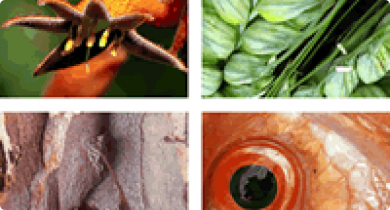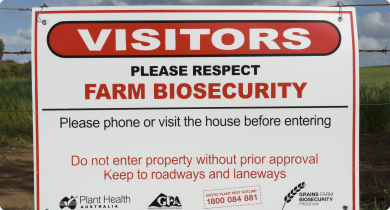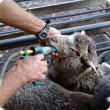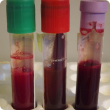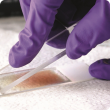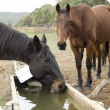Pests, weeds & diseases
Pests, weeds and diseases pose a serious risk for primary producers as they can impact on market access and agricultural production.
To reduce the impact of pests, weeds and diseases, the Department of Primary Industries and Regional Development:
- works with landholders, grower groups, community groups and biosecurity groups.
- provides diagnostic services and information on prevention, management and treatment.
- provides biosecurity and quarantine measures to prevent introduction, and to eradicate or manage current pests.
For advice on pests, weeds and diseases search our website, the Western Australian Organism List or contact our Pest and Disease Information Service (PaDIS).
For diagnostic services, please contact our Diagnostic Laboratory Services.
Filter by search
Filter by topic
- Diseases (130) Apply Diseases filter
- (-) Remove Livestock health & diseases filter Livestock health & diseases
- Biosecurity & quarantine (114) Apply Biosecurity & quarantine filter
- Biosecurity (113) Apply Biosecurity filter
- Livestock disease surveillance (109) Apply Livestock disease surveillance filter
- Livestock & animals (109) Apply Livestock & animals filter
- Livestock biosecurity (109) Apply Livestock biosecurity filter
- Livestock species (91) Apply Livestock species filter
- Livestock management (49) Apply Livestock management filter
- Sheep (44) Apply Sheep filter
- Emergency animal disease preparedness (34) Apply Emergency animal disease preparedness filter
- Beef cattle (30) Apply Beef cattle filter
- Dairy cattle (24) Apply Dairy cattle filter
- Management & reproduction (18) Apply Management & reproduction filter
- Poultry & birds (12) Apply Poultry & birds filter
- Pigs (12) Apply Pigs filter
- Livestock parasites (11) Apply Livestock parasites filter
- Goats (11) Apply Goats filter
- Feeding & nutrition (11) Apply Feeding & nutrition filter
- Livestock movement & identification (8) Apply Livestock movement & identification filter
- Horses (8) Apply Horses filter
- Control methods (7) Apply Control methods filter
- Chemicals (7) Apply Chemicals filter
- Emergency response (6) Apply Emergency response filter
- Wildlife biosecurity (5) Apply Wildlife biosecurity filter
- Veterinary chemicals (5) Apply Veterinary chemicals filter
- Stockfeed (4) Apply Stockfeed filter
- Residues in livestock (3) Apply Residues in livestock filter
- Quarantine (3) Apply Quarantine filter
- Preventing residues (3) Apply Preventing residues filter
- Food, export & investment (3) Apply Food, export & investment filter
- Importing animals (3) Apply Importing animals filter
- Importing to Western Australia (3) Apply Importing to Western Australia filter
- Pests (1) Apply Pests filter
- Pest animals (1) Apply Pest animals filter
- Plant biosecurity (1) Apply Plant biosecurity filter
- Water management (1) Apply Water management filter
- Mechanical, physical and cultural (1) Apply Mechanical, physical and cultural filter
- Water (1) Apply Water filter
- Biosecurity and Agriculture Management Act (1) Apply Biosecurity and Agriculture Management Act filter
- Biosecurity governance (1) Apply Biosecurity governance filter
- Camelids (1) Apply Camelids filter
- Climate, land & water (1) Apply Climate, land & water filter
- Export services (1) Apply Export services filter
- Livestock research & development (1) Apply Livestock research & development filter

